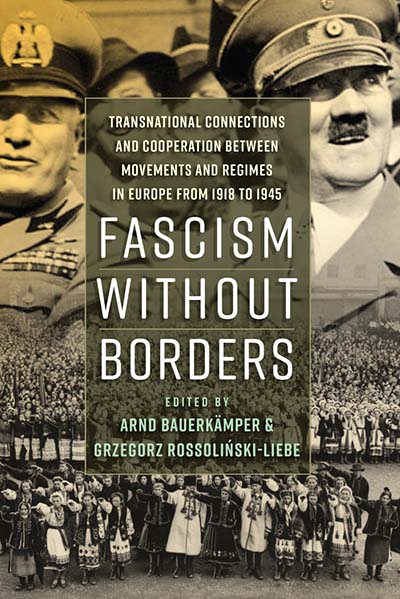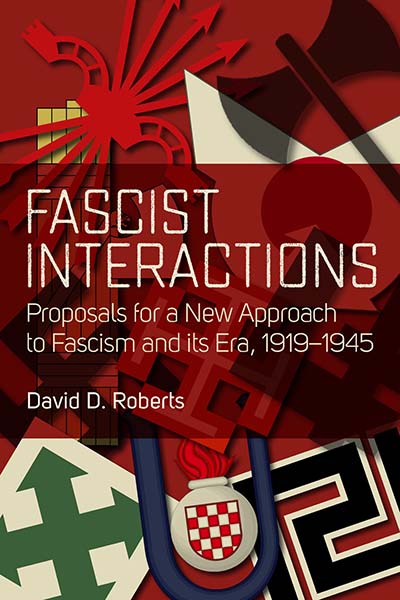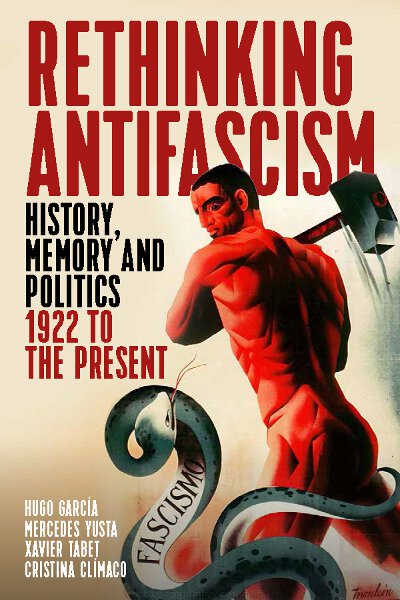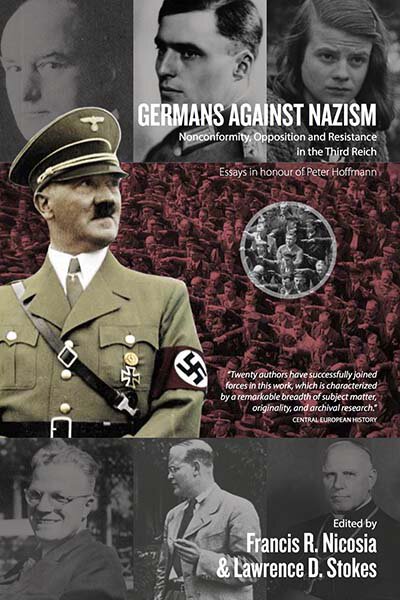
See Related
History JournalsEmail Newsletters
Sign up for our email newsletters to get customized updates on new Berghahn publications.
Fascism without Borders
Transnational Connections and Cooperation between Movements and Regimes in Europe from 1918 to 1945
Edited by Arnd Bauerkämper and Grzegorz Rossoliński-Liebe
384 pages, bibliog., index
ISBN 978-1-78533-468-9 $150.00/£115.00 / Hb / Published (May 2017)
ISBN 978-1-78920-058-4 $39.95/£31.95 / Pb / Published (December 2018)
eISBN 978-1-78533-469-6 eBook
Reviews
“These 13 essays by current specialists, each employing a cross-border comparative approach to fascism, provide upper-level undergraduate students with both methodological insights into the transnational approach and solid, well-researched findings… The strength of this collection lies in fleshing out the details of the consensus scholars have reached… Scholars will appreciate the works-cited endnotes and exhaustive bibliography (both primary and secondary sources) that accompany each essay.” • Choice
“[In their introduction the editors] write pleasurably and concisely with great expertise and analytical abilities. It is pure educational delight to read this…splendid book.” • Comparativ
“The volume captivates through the large number of presented examples and especially through the attention paid to small fascist movements, overshadowed by Italian fascism and National Socialism…The volume therefore offers an important contribution to the growing research on the history of European and global Fascism.” • Beiträge zur Geschichte des Nationalsozialismus
“The book makes a convincing and significant contribution towards reconstructing Fascist and authoritarian regimes in the interwar period, regimes that still conceal many grey areas today. It does so in a way that is not always linear, but this aspect also has a positive side, insofar as it implies working to keep open a debate that still has not found its synthesis.” • HISTORY. Reviews of New Books
“[This volume] is remarkable and exciting. At the same time unassuming and ambitious, the intention is that of complementing the numerous comparative studies already available – generally focusing on Italy and Germany – though an approach that pays attention to cultural exchanges at the level of followers and sympathisers, across the whole of Europe, from Britain to Romania.” • Francia Recensio
“Overall this volume presents an impressive panorama of the transnational networks of fascist groups in Europe that will not only enrich the research on fascism but also offer for anybody interested in history a solid insight into the topic.” • Sehepunkte
“A welcome contribution to the growing literature on fascism as a transnational phenomenon during the era of the two world wars. Based on much innovative new research, a notably multinational group of European scholars offers illuminating insights on a wide variety of topics involving interaction among fascists across national borders. All students of fascism will learn from this book.” • David D. Roberts, University of Georgia
Description
It is one of the great ironies of the history of fascism that, despite their fascination with ultra-nationalism, its adherents understood themselves as members of a transnational political movement. While a true “Fascist International” has never been established, European fascists shared common goals and sentiments as well as similar worldviews. They also drew on each other for support and motivation, even though relations among them were not free from misunderstandings and conflicts. Through a series of fascinating case studies, this expansive collection examines fascism’s transnational dimension, from the movements inspired by the early example of Fascist Italy to the international antifascist organizations that emerged in subsequent years.
Arnd Bauerkämper is a Professor of Modern European History at the Freie Universität Berlin. His publications include Der Faschismus in Europa, 1918-1945 (2006) and Das umstrittene Gedächtnis. Die Erinnerung an Nationalsozialismus, Faschismus und Krieg in Europa seit 1945 (2012).
Grzegorz Rossoliński-Liebe is a Postdoctoral Researcher and Guest Lecturer at the Freie Universität Berlin. He is the recipient of the Kagan Fellowship from the Jewish Claims Conference, the Harry Frank Guggenheim scholarship, and several other awards. He is the author of Stepan Bandera—The Life and Afterlife of a Ukrainian Nationalist: Fascism, Genocide, and Cult (2014).



